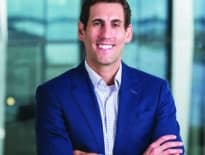
Mike Edward
Across Downtown Boston and the Financial District, many of the desks inside the gleaming office towers collect dust, much as they have since the pandemic emptied out commercial buildings in the spring of 2020.
More than three years after office workers went remote, there is no sign of a sea change that will entice them to leave their kitchen tables for their old office desks, even as COVID rates drop and the vaccine continues to be readily available.
That’s bad news for Boston.
Until office buildings fill up again, the city and region will suffer from a real estate version of long COVID that will continue to zap the area’s economic health.
Real Danger Remains
In the second quarter of the year, office availability rates in Boston hit uncharted territory at 23 percent, according to a report from Perry CRE, the commercial real estate agency where I am the president. Vacancies at class B office buildings were even higher, at nearly 30 percent.
“Escalating interest rates, paired with the growing supply of vacant space (exacerbated by remote/hybrid work) is a threat to the commercial real estate sector. It is not the first, and unlikely to be the last, but it is a threat nonetheless,” according to a Perry CRE report analyzing the first quarter of the year. “Taxes, operating expenses and insurance costs don’t go away even if the building is vacant. The question we’re all trying to answer is ‘what needs to happen for landlords to fill their space?’”
A recent survey of businesses by the Massachusetts Business Roundtable found that 96 percent of them allow for hybrid work, a prime reason nearly half plan to reduce their real estate footprint in the state, up from 36 percent last year.
As leases come up, companies face a choice that could have a profound impact on the city.
If they downsize or move out completely, and property owners can’t pay their bills, the city will be faced with a difficult future. Tax revenues will plummet, and the services we all rely on from police to fire to education will suffer.
Small business owners in the Financial District are already on life support. Anyone who walks downtown on what used to be normally bustling weekdays can see that. Some Fridays feel a lot like the COVID shutdown period.
As of last fall, downtown foot traffic was about 55 percent below 2019 levels, according to a city report. The lack of people on the streets and in and out of shops has forced a number of businesses to close, and the ones that have stayed open are struggling to make ends meet with fewer people coming in to buy lunch or get a shoeshine.
Time for Collective Action
It’s likely some of these commercial buildings will be converted into residential. But that’s a complicated solution given the vast differences between commercial and residential buildings (not to mention zoning restrictions) and simply won’t be enough to save our downtown.
We need to come together and create a plan that will convince our workers to want to come back downtown.
There’s only so much collaboration, creativity and networking that can come from Zoom or Slack. According to the Harvard Business Review, “the physical workplace enables moments of serendipity that can move projects along.” These moments help develop careers, as well as a company’s culture and mission, and give employees connections that can help throughout their working lives.
But it’s more than just workers wanting to be here or bosses making them come in. We must also make it easier and more attractive to live downtown, by encouraging amenities like grocery stores. And of course, we need to make it easier for workers to get to where they want to go.
Traveling into and around town can be a nightmare, whether it’s because of bumper-to-bumper traffic or a T that travels slower than people walk – when it’s not on fire. The city and state must invest in and upgrade mass transit so it becomes a fast and viable option for people to travel seamlessly from home to work.
It’s time for a collective call to action to address the crisis. Without it, Boston and the surrounding area will never bounce back from the pandemic.
Mike Edward is president of Perry CRE and the Greater Boston Real Estate Board chairman-elect.





